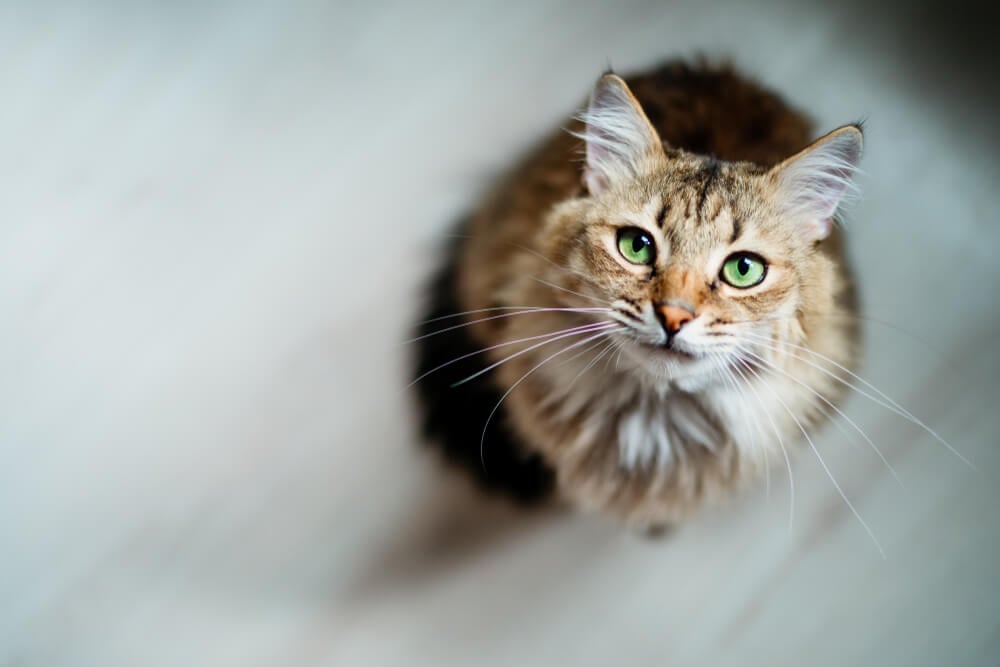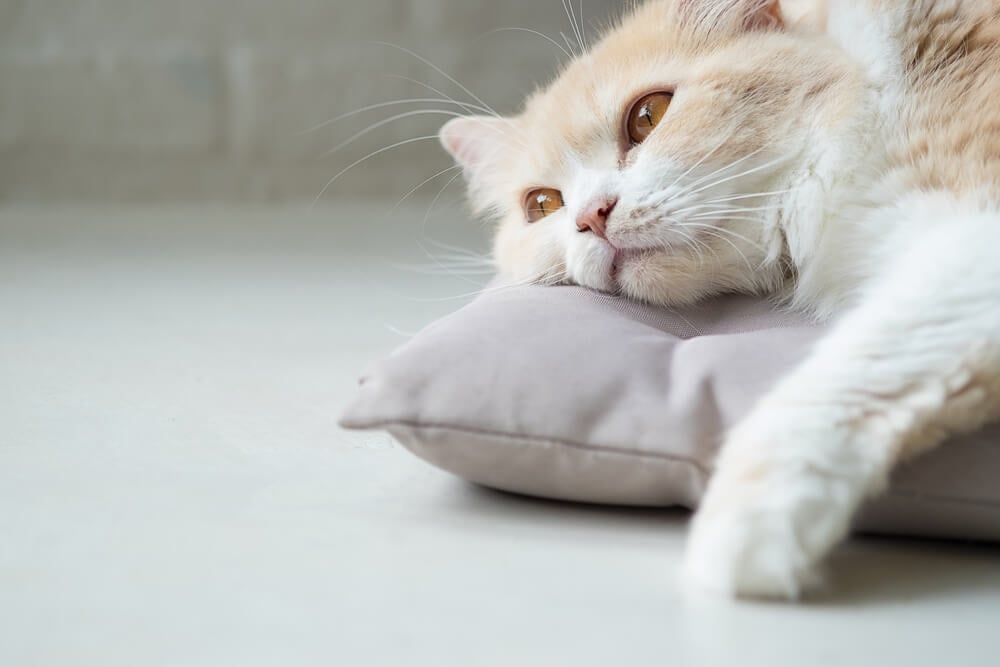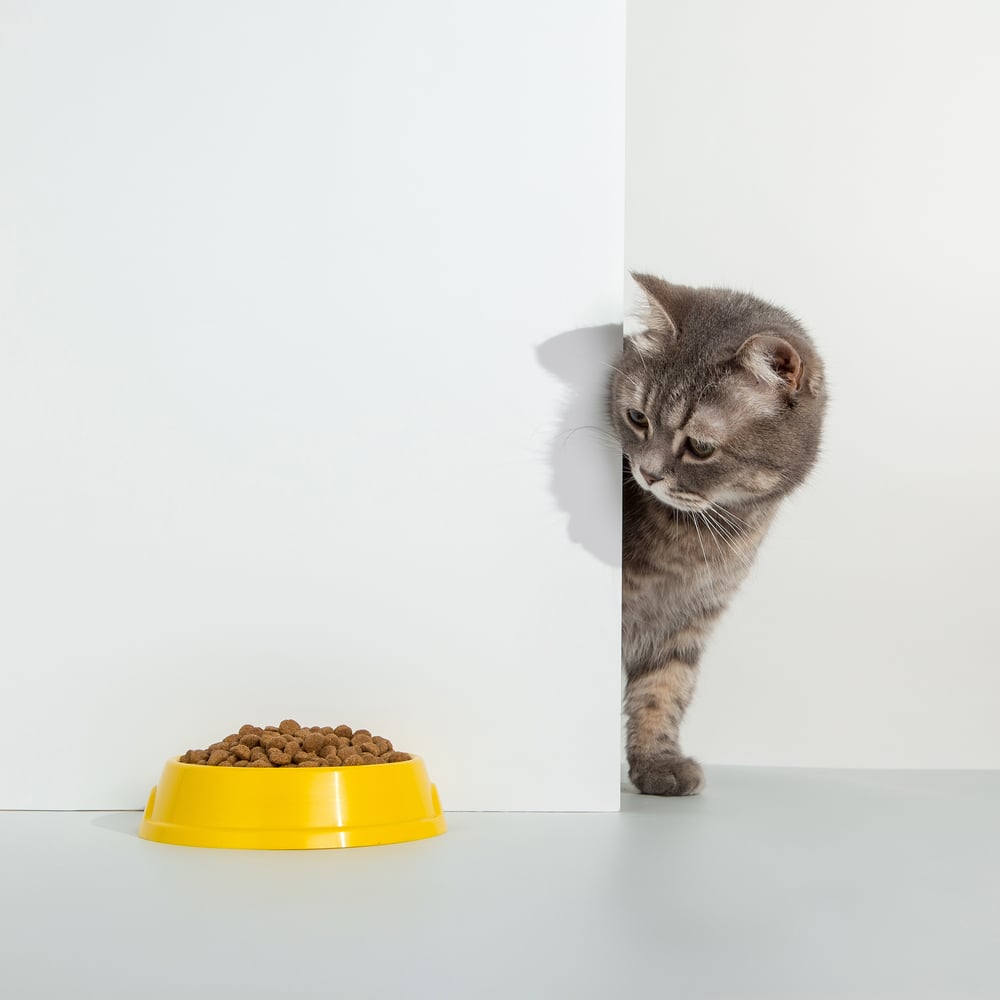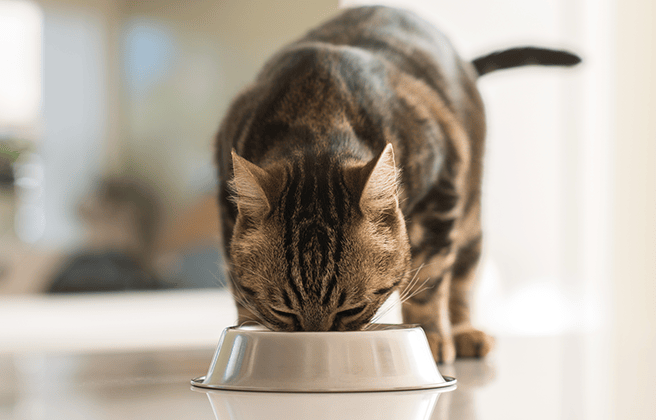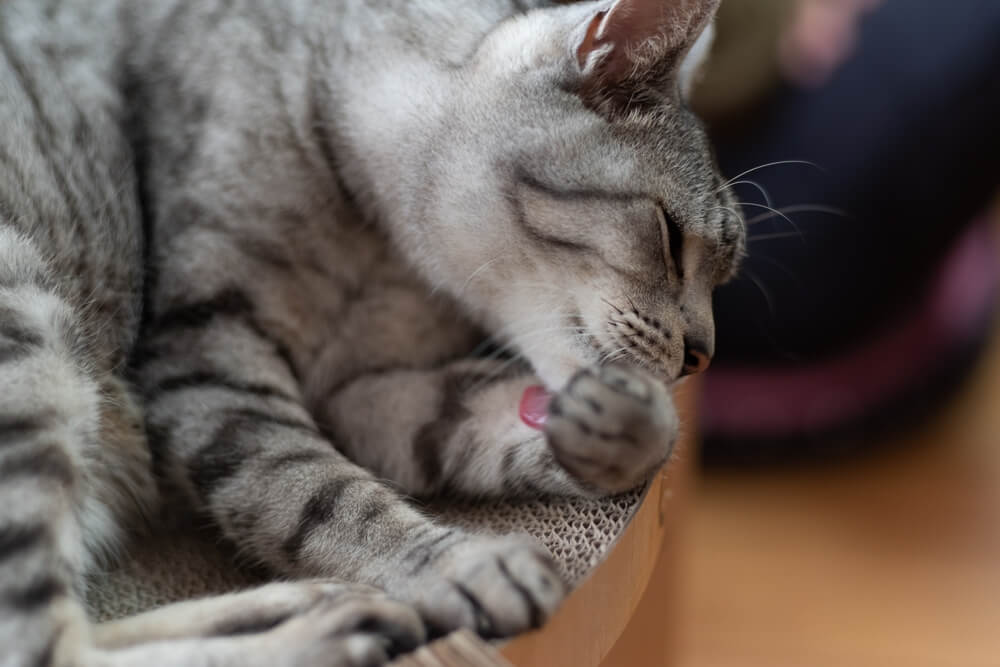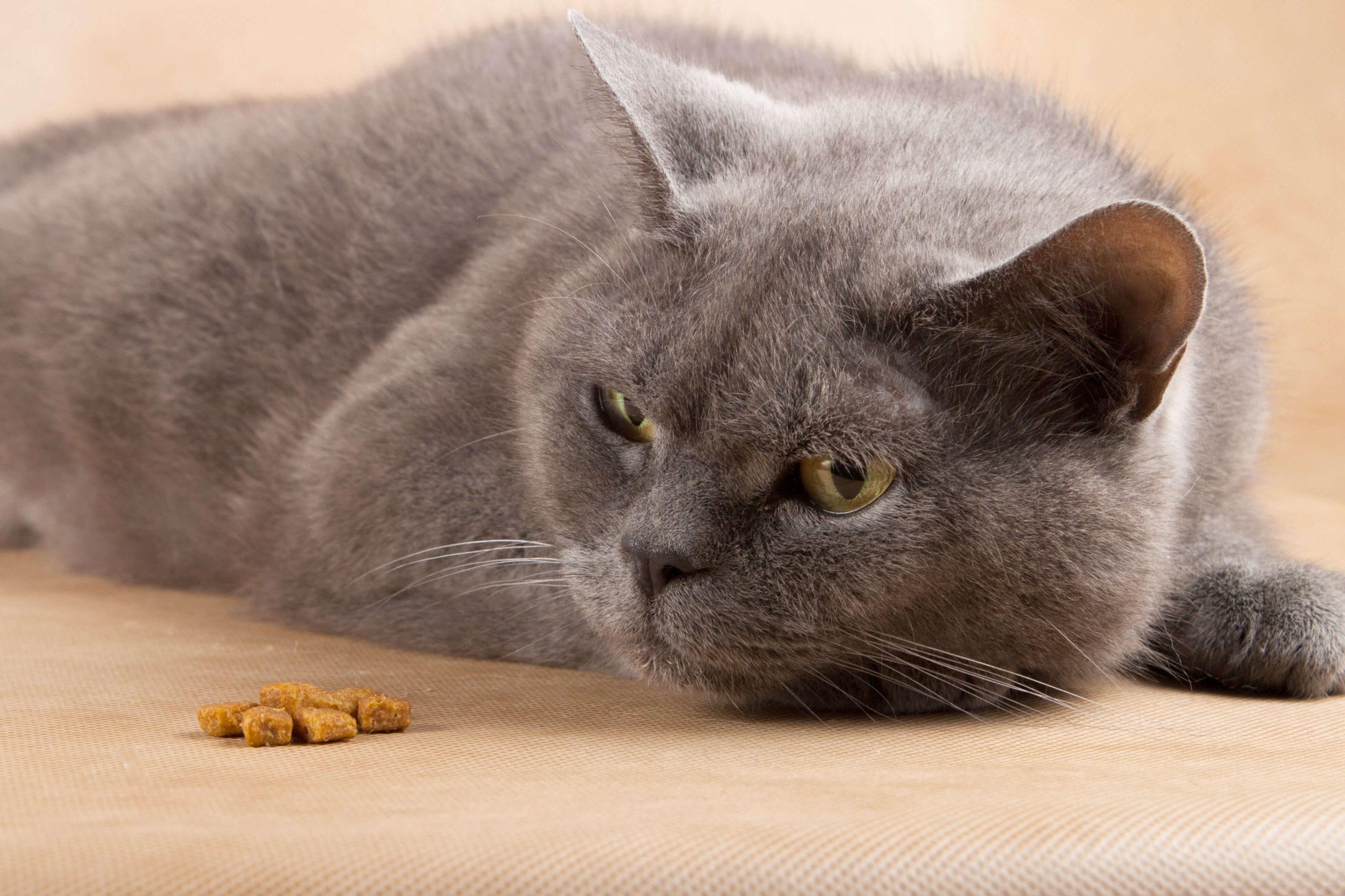
As cat parents, our main role is to ensure our felines are healthy and happy. We provide them with a warm bed, fun toys, cuddles, freedom, and the best food we can find.
You would expect mealtime to be their favorite time of day, and if it is, that’s a good sign.
So, it can be concerning if your cat suddenly stops eating or goes through phases of skipping meals.
Maybe your cat is acting normal but not eating, or they might have a few other symptoms such as diarrhea or meowing more than usual.
There are many reasons why a cat might not be eating, from environmental changes to the type of food bowl, and underlying health conditions. To help, we will share some of the most common below and when it’s time to call the vet.
Why is my cat not eating?
Change in environment
Cats thrive on routine, and even small changes can impact their eating habits. Moving to a new home, introducing a new pet, or even rearranging furniture (how dare you) can cause stress, leading to a loss of appetite. If your cat is refusing food after a recent change, give them time to adjust and provide a quiet, safe space for them to eat. Cats can be sensitive little creatures.
The type of food
Cats can be particular about their food. If you’ve recently switched brands or flavors, they might be hesitant to eat. Some cats also dislike cold food straight from the fridge. Try warming it slightly or mixing it with their previous food to ease the transition. On the other hand, if you’ve been feeding the same food for years, try making a gradual switch or adding a topper for taste.
Dental problems
Painful dental issues like gingivitis, tooth decay, or mouth ulcers can make eating uncomfortable. If your cat is showing any of the following symptoms, a vet check-up is necessary:
- Decreased interest in hard treats
- Chewing more slowly than usual
- Dropping food from the mouth while chewing
- Excessive drooling
- Pawing at the mouth
- New or worsening resistance to having the face/mouth touched
- Foul breath
- Visibly loose teeth
- Swelling of muzzle
Digestive issues
An upset stomach, constipation, or internal parasites can make a cat feel too unwell to eat. If your cat is vomiting, has diarrhea, or seems bloated, digestive issues could be the cause. Ensure they have access to fresh water and consult a vet if symptoms persist.
Underlying medical condition
Loss of appetite can be an early sign of serious illnesses such as kidney disease, diabetes, or hyperthyroidism. If your cat is lethargic, losing weight, or displaying unusual behavior, a vet visit is crucial to rule out any underlying health conditions.
Your cat is on medication
Certain medications can cause nausea or loss of appetite as a side effect. If your cat has recently started a new prescription and refuses food, consult your vet about potential alternatives or ways to manage side effects.
Stress or anxiety
Cats are sensitive to stress, and factors like loud noises, new pets, or a traumatic experience can affect their eating habits – much like humans! Creating a calm feeding environment and using pheromone diffusers may help reduce anxiety and encourage them to eat.
Food rancidity
As natural hunters, cats are very sensitive to any signals that the fats in food are oxidising (rancidity). In other words, your cat probably won’t eat food that has “gone off”in any way. If the food is old, not sealed tightly between servings or approaching the end of its shelf life, they will probably refuse it.
Toxic substances
Cats are curious by nature, and ingesting toxic foods, plants, or chemicals can lead to a loss of appetite and serious health issues. If you suspect poisoning, look for symptoms like drooling, vomiting, or lethargy, and contact a vet immediately.
The type of bowl and where its positioned
Believe it or not, the type of food bowl can affect your cat’s eating habits. Some cats dislike deep or narrow bowls due to whisker fatigue, where their whiskers become overstimulated. Opting for a shallow, wide dish may encourage them to eat more comfortably. Oh, and you best ensure that the bowl is clean because cats are not sloppy animals.
Cats like to see the room whilst they eat. So, placing a bowl in the corner of the kitchen or where they have their back to the room could impact their eating habits. Make sure your cat’s bowl is in a quiet area away from the litter box, and ensure they can keep an eye on the goings-on.
What to do if a cat won’t eat?
If your cat refuses food for more than 24 hours, try these steps:
- Offer a variety of textures and flavors to see if they prefer something different.
- Warm their food slightly to enhance the aroma and make it more appealing.
- Ensure their feeding area is quiet and free from distractions.
- Try hand-feeding small amounts to encourage eating.
- Provide fresh water and check for signs of dehydration.
- If loss of appetite persists for more than 48 hours, consult a vet.
When should I be concerned about my cat not eating?
You should seek veterinary attention if your cat:
- Hasn’t eaten for more than 48 hours.
- Shows signs of pain, lethargy, or unusual behavior.
- Has vomiting, diarrhea, or significant weight loss.
- Struggles to chew or swallow food.
- Displays symptoms of poisoning or distress.
FAQs
1. Why is my cat acting normal but not eating?
Your cat may be experiencing mild stress, food aversion, or dental discomfort. Monitor their behavior and consult a vet if the issue persists.
2. Can I force-feed my cat if they won’t eat?
Force-feeding is not recommended, as it can cause stress and potential aspiration. Instead, try offering tempting foods or seek veterinary help.
3. Should I change my cat’s diet if they stop eating?
If your cat refuses their usual food, try offering a different flavor or texture. However, avoid sudden diet changes that could upset their stomach.
4. Can dehydration cause a loss of appetite in cats?
Yes, dehydration can lead to nausea and decreased appetite. Ensure your cat has fresh water available at all times.
5. When should I take my cat to the vet for not eating?
If your cat refuses food for more than 48 hours or shows signs of illness, contact your vet immediately.
We uphold the highest editorial standards when creating the authoritative content pet parents rely on and trust.
Every piece of clinical content on the Cat Food Advisor is reviewed by our certified Veterinary Advisory Board, which consists of licensed veterinarians and medically certified specialists.
Our reviews are completely independent; we are not paid by any pet food company to promote their products favorably. We do not accept money, gifts, samples or other incentives in exchange for special consideration. For more information see our Disclaimer & Disclosure page.




